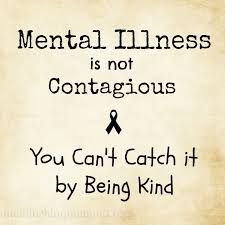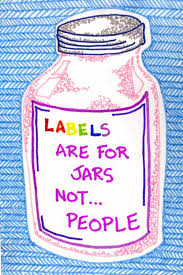 _Years ago, the term ‘mathari’ brought a lunatic impression in my mind. That was the prejudice I was fed on by society; those were dangerous people in there, they were evil spirits in human bodies.
_Years ago, the term ‘mathari’ brought a lunatic impression in my mind. That was the prejudice I was fed on by society; those were dangerous people in there, they were evil spirits in human bodies.
As I have come to be, I realize that ‘mathari’ is just but a centre for people with psychiatric conditions, in as much as poor management and stigmatization has made it seem like a ‘prison for mad men and women’ where they are kept to count their remaining days on earth.
Stigma is a social injustice that discredits many people with mental illness, terribly harming them in the process, or rather, it is stereotypes that reflect a group negatively. Its resulting injury is broad and cutting.
A few days before I left campus I had my eyes troll through a really good book that shamed stigma towards the mentally ill. I was so intrigued as to ignore the author and its title, but I am glad I kept notes and here are some of the excerpts from that book concerning stigma.
‘In the 1800s people with mental illness were confined to cells or chained walls, with little consideration to such very basics as food and clothing. Sadly, tourists of the time travelled to asylums as fun outing, similar to seeing animals at the zoo. Some of the sufferings the mentally ill faced were; bloodletting- opening a vein so that bad “humours” were ejected and replaced by sane fluids. There were also; twirling people in a chair, tying them down for excruciatingly long periods and dunking them in tanks filled with water.
The following are three sets of stigmatizing attitudes about mental illness commonly endorsed by the average person;
i) Fear and exclusion; persons with severe mental illness are dangerous, should be feared, and therefore be kept out of most communities.
ii) Authoritarianism; persons with severe mental illness are irresponsible; their life decisions should be made by others
iii) Benevolence; persons with severe mental illness are childlike and need to be cared for.
Stigma can bias our memory so that persons with mental illness are recalled in a more negative light, they hence are remembered in a biased manner.
Insights of people like Clifford beers, Judy Chamberlin and Oaks challenged the very core of mental health practice with their viewpoints.’
Clifford Beers generously shares his experience as a mental illness patient; the rough patch he endured in asylum and his journey to recovery. All these he documents in his book ‘A mind that found itself’ He explains the ruthless attention he got from ward attendants defined by the wilful frustration and repression of reasonable desires which made him and others seeming maniacs. Beers remembers an incident where one of the patients, in a ward next to his was discharged to go home before he fully recovered. The man hanged himself in the first month he gained liberty after being discharged as improved and not cured. The memories of the abuse, torture and injustice which were so long his portion may have proved to be the last straw which overbalanced the desire to live. In his book, behavioural discrimination speaks loudly as a stabbing pain in a patient’s life.
Behavioural discrimination occurs most obviously when one person is in a more powerful role compared to the person with mental illness. For example; property owners do not rent an apartment to a person because he was in a psychiatric ward, passengers move their seats when a person with facial tics sits next to them. etc This kind of pulling back is hurtful to persons with mental illness who are trying to fit into their community.
Affirming actions are needed to stop discriminatory behaviour. They include efforts to reach out to persons with mental illness and include them as full members of the community. In Zimbambwe for instance, an initiative to reach the mentally ill in the community has been really productive. The friendship bench as it is called, incorporates community counsellors in different parts of the country who help people in need find mental health support.
Perceptions by themselves are not enough to come to conclusions about someone.
Being aware of stereotypes however, does not mean a person agrees to them. Agreeing to stereotypes is the definition of prejudice.
As this month of May (the mental health awareness month) comes to an end, it is my prayer that we end stigma toward the mentally ill and instead support them. _
_